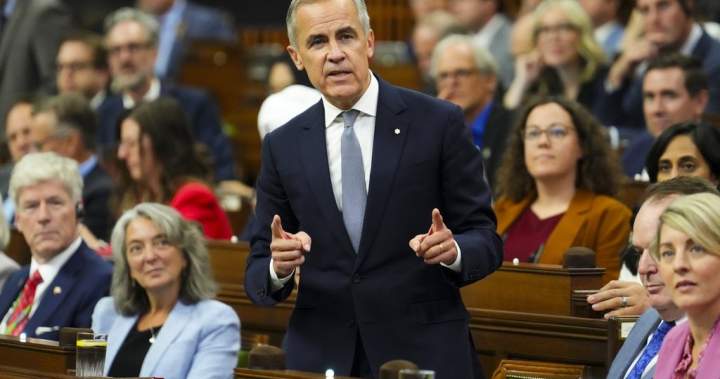As Canada Post hemorrhages an estimated $10 million daily during the ongoing nationwide strike, former Bank of Canada governor Mark Carney has stepped into the fray with pointed criticism of the Crown corporation’s current business model. The prolonged labor dispute between Canada Post and the Canadian Union of Postal Workers (CUPW) has now stretched into its second week, paralyzing mail delivery across the country and prompting urgent calls for structural reform.
“The current Canada Post model is simply unsustainable in today’s digital economy,” Carney stated during a televised interview with CO24 News. “While postal services remain essential, particularly for rural communities, the corporation requires fundamental restructuring to adapt to changing consumer behaviors and technological realities.”
The strike, which began on November 15, has effectively halted operations at Canada Post facilities nationwide, with approximately 55,000 workers walking off the job. Negotiations have stalled over several contentious issues, including wage increases, workplace safety measures, and job security in the face of automation.
Carney, who now serves as the UN Special Envoy on Climate Action and Finance following his tenure at both the Bank of Canada and Bank of England, highlighted the economic consequences of the prolonged service disruption. “Beyond the immediate daily losses, we’re seeing significant impacts across Canadian businesses that rely on postal services for deliveries, invoicing, and customer communications,” he noted.
The dispute comes at a particularly challenging time for Canada Post, which reported a $429 million loss for 2023 as letter mail volumes continue their steep decline. Parcel delivery, while growing, faces intense competition from private courier services and e-commerce giants developing their own delivery networks.
Prime Minister Justin Trudeau has thus far resisted calls from opposition parties to legislate postal workers back to work, instead urging both sides to reach a negotiated settlement. “We believe in the collective bargaining process,” Trudeau stated during Question Period. “These are difficult but necessary negotiations about the future of postal service in Canada.”
Industry analysts suggest Canada Post’s challenges mirror those faced by postal services globally, as digital communication continues to erode traditional mail volumes. “What we’re witnessing is an existential moment for Canada Post,” explained Dr. Elaine Wong, professor of business strategy at the University of Toronto. “The corporation needs to reimagine its role in a digital economy while maintaining essential services for Canadians.”
CUPW President Jan Simpson has defended the union’s position, arguing that workers should not bear the brunt of management’s failure to innovate. “Our members deliver essential services to Canadians every day, often in challenging conditions. We’re fighting for fair compensation and safe working conditions while the corporation focuses on cost-cutting rather than growth strategies.”
Small businesses across Canada have been particularly hard-hit by the strike. A recent survey by the Canadian Federation of Independent Business found that 68% of small business owners reported significant disruptions to their operations, with many scrambling to find alternative delivery methods at considerably higher costs.
As negotiations continue under a media blackout, the question remains whether Canada Post can emerge from this dispute with a viable path forward. Carney and other economic experts suggest that any resolution must include substantial reform of the corporation’s business model, potentially including service reductions, pricing changes, and diversification into new revenue streams.
What remains unclear is whether Canadians are prepared for a fundamental reshaping of a service that has been part of the national fabric since 1867. As digital alternatives continue to replace traditional mail, how can Canada Post reinvent itself while maintaining its mandate to provide universal service to all Canadians, regardless of where they live?














